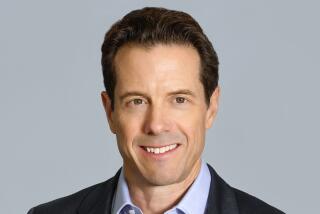Disney thinks different
- Share via
NEWS THAT WALT DISNEY Co. is likely to buy Pixar, headed by Apple Computer CEO Steve Jobs, has prompted a flurry of speculation. What role would Jobs play in the Magic Kingdom? How would the purchase change Disney’s Internet strategy? And would Dopey and the other dwarfs get their own iPod?
That last is not an entirely facetious question. Although the asset that Disney is pursuing here is Pixar Animation Studios’ remarkable ability to churn out hit movies, the deal would also bring one of the greatest marketing geniuses in American business to Disney’s board. Apple’s outsized success is due as much to its image as to its technology, and its image is almost entirely a Steve Jobs production. How much influence Jobs would want to exert at Disney remains unknown, of course, but as its largest individual shareholder, his views would certainly carry weight.
At least as important as Jobs’ involvement, however, is the talent Pixar has shown for creating characters and telling stories with broad appeal. This used to be Disney’s stock in trade. Mickey Mouse, Donald Duck, Snow White, Cinderella, Peter Pan -- the list of animated film treasures went on and on for decades. But after “The Lion King” in 1994, the company’s well ran dry. With the exception of “Lilo and Stitch” in 2002 and last year’s “Chicken Little,” Disney’s animated lineup has been populated with forgettable duds and retreads -- hardly the stuff that can be released every decade in a new format, as Disney has done with the likes of “Bambi.”
Meanwhile, Pixar blazed the trail for the computer-generated filmmaking that has taken over the animation industry. Each of its six full-length releases has been a huge hit, from “Toy Story” in 1995 through “The Incredibles” in 2004. And they were co-financed and distributed by Disney, making the contrast between their success and Disney’s homegrown flops more acute. The deal between the two companies is slated to end this summer, after they release their seventh film together, “Cars.”
What these movies have in common is John Lasseter, who served as either director or executive producer on all of them. Lasseter, who received his training and start in the animation business from Disney, left the company two decades ago, after Disney showed little interest in computer-generated animation. Lasseter now is the head of Pixar’s creative department, which unlike Disney has a reputation for giving filmmakers plenty of freedom.
That creative license may be the key to the success of this deal, if it goes through. If all Disney got out of this deal was a rejuvenated sense of storytelling and better box-office revenue, it would be worthwhile.
Besides, if Jobs decides to take a minimal role at Disney, instead devoting all his innovative energies to Apple, all the hype over his future role may be misplaced. The best kind of hype, as Jobs would undoubtedly agree, is about the product, not the personality. Unless that personality happens to be Buzz Lightyear.
More to Read
The biggest entertainment stories
Get our big stories about Hollywood, film, television, music, arts, culture and more right in your inbox as soon as they publish.
You may occasionally receive promotional content from the Los Angeles Times.










